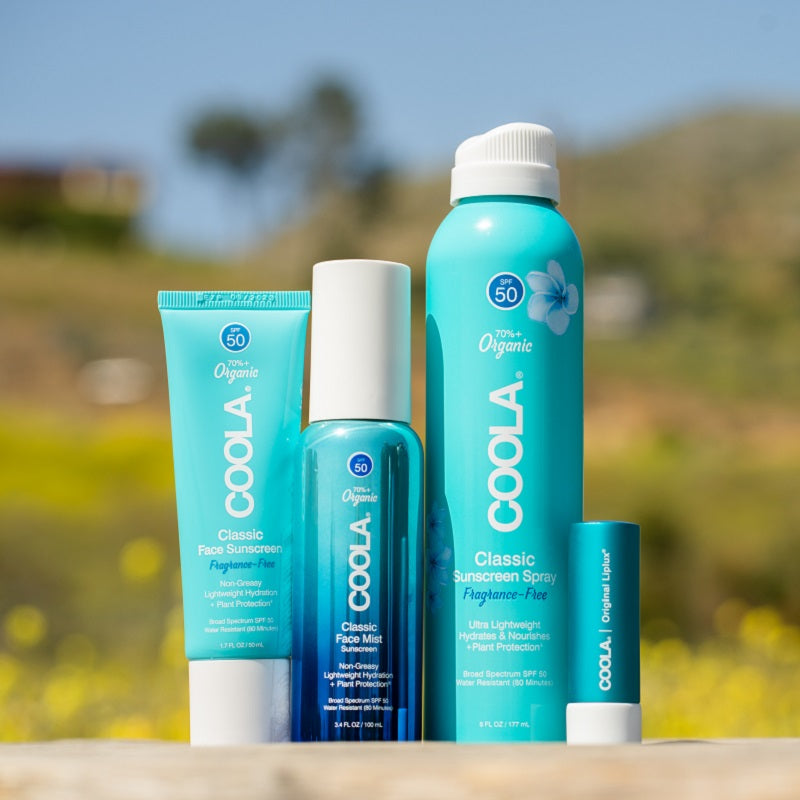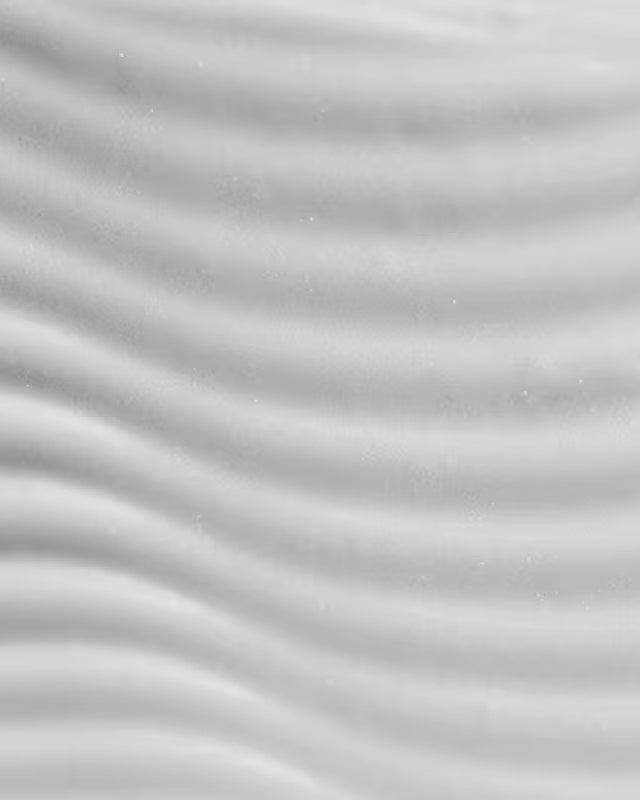
Does Sunscreen Cause Acne? The Truth About SPF & Breakouts
Acne can be frustrating, especially when juggling skincare products and figuring out what works. But one step we might be overlooking? Sunscreen. Daily SPF isn’t just about sun protection—it plays a major role in keeping acne-prone skin blemish-free.
The wrong sunscreen can clog pores and trigger breakouts, but the right one can reduce inflammation and fade acne scars. So, how do we know which ingredients to avoid? And what should we look for instead?
Let’s explore why sunscreen matters, what ingredients to avoid, and how to find the best SPF for acne-prone skin to keep it clear and glowing.
Why Sunscreen Matters for Acne-Prone Skin
Without SPF, our skin can become more inflamed, worsening breakouts and slowing healing. But a natural sunscreen keeps our skin balanced and protected, playing a role in maintaining a clearer complexion:
- Fades post-acne dark spots. Ultraviolet (UV) radiation from the sun can darken hyperpigmentation and make acne scars more noticeable. Sunscreen helps keep our skin tone even by blocking the UV exposure that deepens discoloration.
- Reduces inflammation.UV exposure aggravates active breakouts, making them more inflamed and irritated. Sunscreen minimizes this reaction and supports skin recovery.
- Shields against dryness and irritation. Acne treatments ike retinoids and benzoyl peroxide make skin more sensitive to the sun, causing peeling and discomfort. Sunscreen adds a protective layer that helps prevent further irritation.
- Supports long-term healing. UV exposure weakens the skin barrier, slowing repair and making breakouts more persistent. Sunscreen protects the skin, helping it recover faster.
A high-quality moisturizer with sunscreen can protect our skin without causing breakouts, but not all formulas work the same way. Knowing what to avoid helps maintain a smooth, healthy complexion.
Does Sunscreen Cause Acne?
Like any skincare product, not every sunscreen works for every skin type. Some formulas contain ingredients that can clog pores, trigger irritation, or worsen breakouts. While sunscreen protects acne-prone skin, choosing the wrong one can do more harm than good.
The key is to look beyond the label. Terms like "oil-free" and "non-comedogenic" can help, but they don’t always guarantee a break-out-free formula. The best way to make sure our sunscreen protects without clogging pores is to check the ingredient list. Some common irritants to watch out for include:
| Ingredient | What It Is and Why It Causes Breakouts | Where It’s Found |
|---|---|---|
| Oxybenzone | A synthetic UV filter that absorbs sun rays but may irritate sensitive skin and weaken the skin barrier. | Some chemical sunscreens. (COOLA’s formulas don’t contain Oxybenzone.) |
| Octinoxate | A chemical UV filter that helps absorb sun rays but is known to clog pores and trigger sensitivity in acne-prone skin. | Some chemical sunscreens and moisturizers with SPF. (COOLA’s formulas don’t contain Octinoxate.) |
| Coconut Oil | A natural emollient that’s highly comedogenic, trapping oil and bacteria in the pores. | Mineral sunscreens (which sit on top of the skin to reflect UV rays) and natural SPF formulas. |
| Silicones (Dimethicone, Cyclopentasiloxane) | Creates a smooth feel but may trap oil and bacteria, leading to congestion and breakouts. | Many lightweight, mattifying sunscreens. |
| Fragrances and Essential Oils | Added for scent but can cause irritation, inflammation, and sensitivity in acne-prone skin. | Scented sunscreens, some natural or organic formulas. |
| Alcohol (Denatured, SD Alcohol 40) | Helps products dry quickly but can strip moisture, leading to irritation and increased oil production. | Spray sunscreens with fast-absorbing formulas. |
Not every ingredient affects skin the same way, but if a product seems to cause breakouts, checking the label for these common irritants can help find a better match.
Ingredients That Help Keep Skin Clear
Choosing a sunscreen that supports acne-prone skin helps protect it while promoting a healthier complexion. Certain ingredients regulate oil, calm inflammation, and prevent clogged pores, making SPF an essential part of our routine.
The ideal formula works with our skin, not against it. Look for these ingredients when searching for your perfect SPF match:
Niacinamide: The Multitasking Skin Soother
Niacinamide, also known as vitamin B3, helps reduce redness, control oil production, and support the skin barrier. For acne-prone skin, it minimizes inflammation and prevents excess sebum buildup, which can lead to clogged pores.
It also helps fade post-acne marks, which is why COOLA’s Clear Skin Oil-Free Moisturizer SPF 30 includes 2% niacinamide to keep skin balanced while providing sun protection.
Zinc Oxide: Gentle, Non-Comedogenic UV Protection
Zinc oxide is a mineral sunscreen filter that sits on the skin’s surface, blocking UV rays without clogging pores. It’s naturally soothing, making it ideal for sensitive or acne-prone skin. Unlike chemical sunscreens, it won’t absorb into the skin, reducing the risk of irritation or breakouts.
Our Oil-Free Moisturizer uses non-nano zinc oxide for broad-spectrum protection that won’t weigh skin down or cause congestion.
Centella Asiatica: A Calming Plant Extract
Also called "Cica," this plant-derived ingredient has powerful anti-inflammatory and healing properties. It helps calm irritated skin, reduce redness, and support breakout recovery. Sunscreens containing Centella Asiatica can benefit those using acne treatments that increase sensitivity.
Raspberry Seed Oil: Antioxidant Protection for Stressed Skin
COOLA’s Face Sunscreen Lotion SPF 50 contains raspberry seed oil, a powerful antioxidant that helps protect skin from environmental stressors like pollution and blue light. For acne-prone skin, it provides lightweight nourishment while offering additional UV protection, helping to prevent irritation and premature aging without feeling heavy or greasy.
Titanium Dioxide: Lightweight Mineral Protection
Titanium dioxide is a gentle mineral sunscreen filter that sits on the skin’s surface, reflecting UV rays rather than absorbing them. Unlike some chemical filters, it’s non-irritating and ideal for acne-prone or sensitive skin.
COOLA’s Rosilliance® Tinted Moisturizer SPF 30 uses 5.6% titanium dioxide to provide broad-spectrum protection while offering sheer, breathable coverage. Available in Golden, Rose, and Bronze, this tinted formula boosts the skin’s natural warmth while including organic safflower seed oil for hydration and organic acai oil for antioxidant defense.
Choosing sunscreens with these ingredients helps us protect our skin while providing the care it needs to stay clear and healthy.
How To Use Sunscreen With Acne-Prone Skin
Choosing the right sunscreen matters, but how you apply it determines how well it works. A few simple steps can help keep your skin protected without clogging pores or adding excess shine:
- Apply after moisturizer and before makeup. Let each layer absorb fully to prevent pilling and uneven coverage.
- Choose a matte finish for oily skin. A matte formula helps control shine and absorb excess oil throughout the day.
- Apply frequently. Sunscreen wears off over time, so refresh your coverage every two hours, especially when outdoors, sweating, or swimming.
- Remember your lips. An SPF lip balm, like our Liplux® Tinted Lip Balm Zinc Oxide Sunscreen, prevents sunburn and dryness, keeping lips soft and protected.
Proper application ensures sunscreen and acne treatments work together, protecting your skin without causing breakouts or irritation.
Clear Skin Starts With COOLA Gentle, Natural Sunscreens
Sunscreen plays a more important role in acne care than many realize, and COOLA makes it simple to find a formula that protects without triggering breakouts. Our sunscreens are crafted with organic ingredients and lightweight textures to nourish the skin while shielding it from UV damage.
From non-comedogenic mineral options with zinc oxide and titanium dioxide to hydrating, antioxidant-rich formulas, our skin-loving products support acne-prone skin rather than work against it.
Whether you surf, hike, or lounge by the pool, we have lightweight, skin-friendly sunscreen for your daily routine. Explore our collection today and find the perfect SPF for blemish-free, healthy skin.




